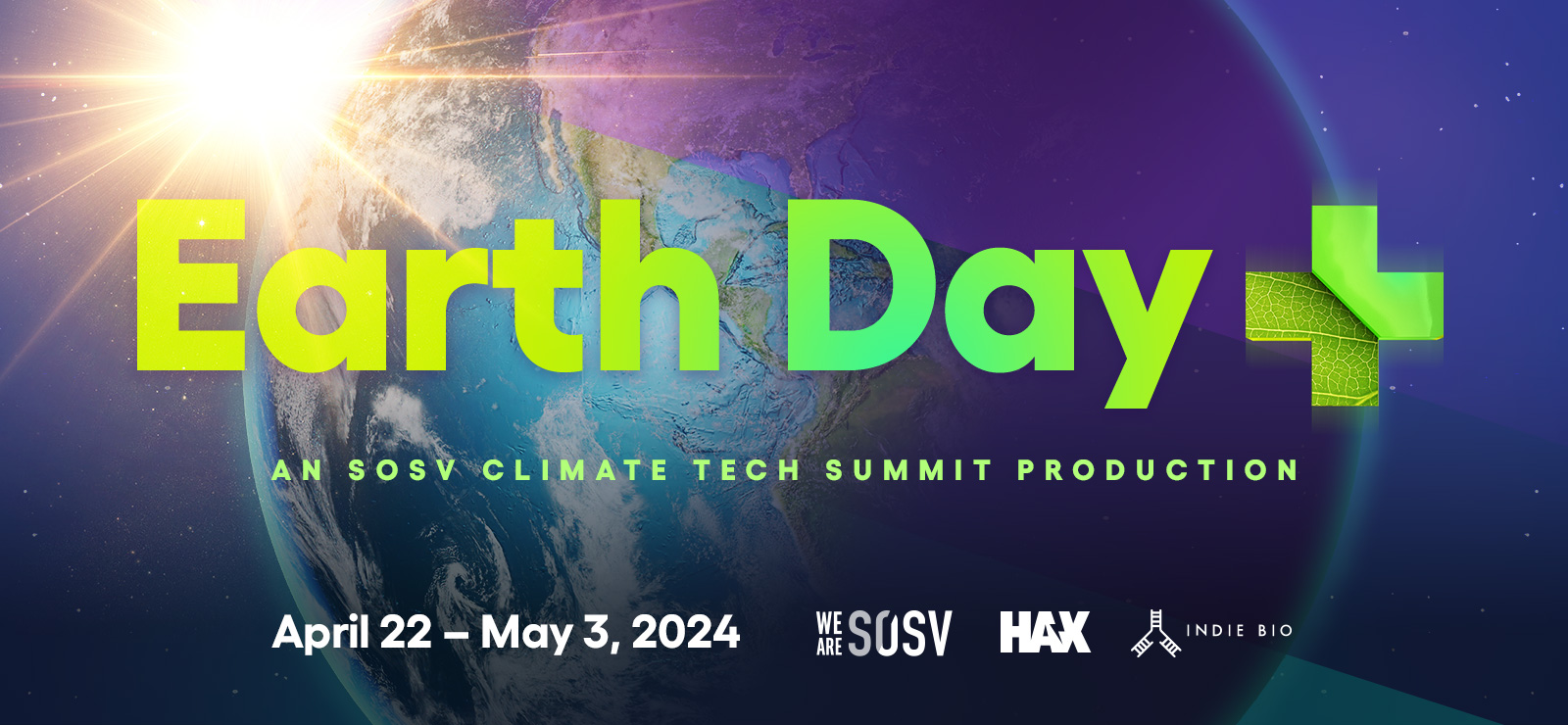Ever since the first SOSV Climate Tech Summit in 2021, we’ve heard that SOSV should do more climate events. We agree!
April 22 is Earth Day, and we’re marking that occasion with a VC-Founder Matchup and a series of live programs centered on top investors and founders in climate tech. Each will have its own Zoom Session, which attendees can register for in advance. The sessions will last one hour to allow for a combination of moderated discussion and audience questions.
The Matchup
Registration opens today, and the meeting start on April 22 and continue through May 3. Get all the details and register here. Last year’s climate matchups and sustainability produced 5,000 VC-founder meetings. Yes, the matchup is free.
The Programming
All the sessions are live, scheduled for one hour, will allow for a combination of moderated discussion and audience questions.
EARTH DAY+ SESSIONS
MONDAY, APRIL 22, 9:00AM–10:00AM PT
“Cheaper, Faster, Better: How We’ll Win the Climate War”– The view from Galvanize
Speakers

Tom Steyer
Co-Executive Chair of Galvanize Climate Solutions

Saloni Multani
Co-Head, Venture & Growth, Galvanize Climate Solutions

Po Bronson
General Partner, SOSV & Managing Director, IndieBio
DESCRIPTION
Tom Steyer’s Galvanize Climate Solutions closed a $1 billion climate fund last September, and this spring he has a new book coming out, “Cheaper, Faster, Better: How We’ll Win the Climate War.” Joining Tom is one of Galvanize’s top investors, Saloni Multani, and moderating is SOSV general partner Po Bronson, who will talk to Tom about his new book and draw out Saloni on the plan for Galvanize, “a multistrategy climate investment firm designed to unlock the generational opportunity of the energy transition.” (“Cheaper, Faster…” is available on Amazon, Barnes and Noble, and Bookshop.)
MONDAY, APRIL 22, 12:00PM–1:00PM PT
Can Form Energy meet the rapidly growing demand of grid-level, long-duration energy storage?
Speakers
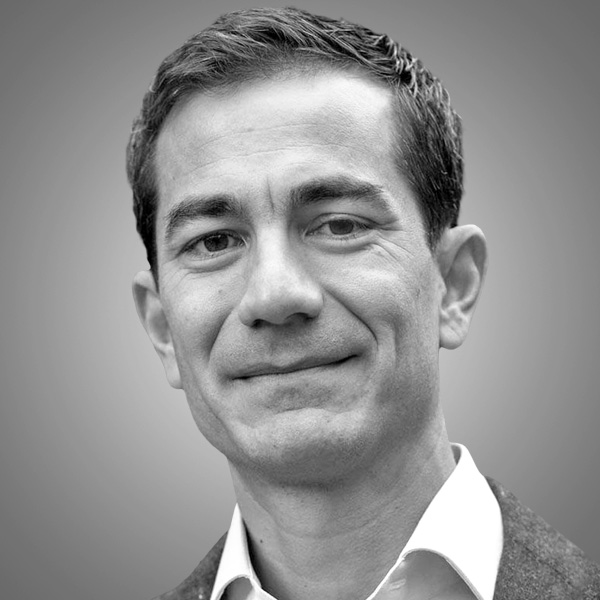
Mateo Jaramillo
CEO and Co-Founder, Form Energy

Moderator: Ben Joffe
Partner, SOSV
DESCRIPTION
With more than $900 million raised, Form Energy is the frontrunner in the US to deliver the long duration energy storage (LDES) necessary to make renewable energy part of the baseload on the grid. Form has broken ground on a new manufacturing plant in West Virginia for its low-cost, 100-hour duration, iron-air batteries, and utility companies eager to tap renewables are signing up for prototypes. As Form Energy scales up, how fast can it go to deploy its essential component for energy transition.
Tuesday, APRIL 23, 8:00AM–9:00AM PT
Dressing for Climate Success: Three startups decarbonizing fashion
Speakers
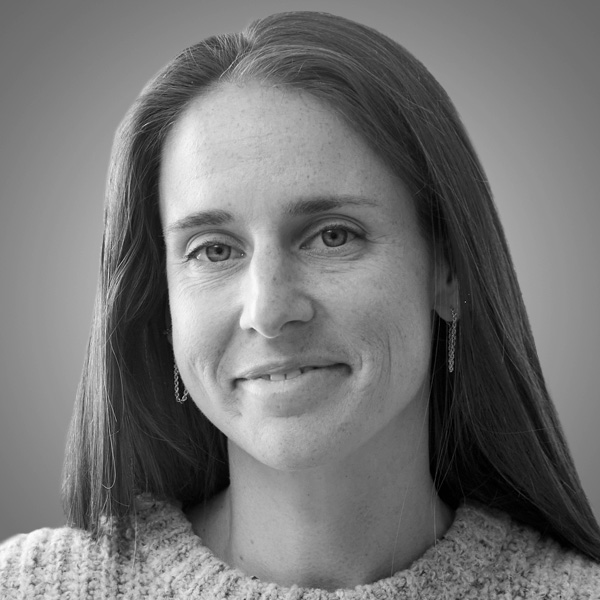
Beth Esponnette
Chief Product Officer and Chair, unspun

Gilberto Loureiro
CEO & Co-Founder, SMARTEX

Onur Eren
Co-Founder, GOZEN

Moderator: Sabriya Stukes, PhD
Partner, SOSV; Chief Scientific Officer, IndieBio NY
DESCRIPTION
The manufacture of clothing, and material consumed in the process, is a vast industrial ecosystem ripe of decarbonization from many angles. Three startups leading the way: Unspun, which localizes production and eliminates waste with customized, onsite clothing production, is coming to Walmart soon. Smartex uses computer vision to catch defects in textile weaving early, reducing waste and costs associated with imperfections. Gozen makes a biomaterial from micro-organisms that is stronger than animal leather but has the same natural drape – so much so the fashion house Balenciaga recently showcased Gozen’s Lunaform material.
Tuesday, APRIL 23, 9:00AM–10:00AM PT
Keeping the heat on: Antora’s plan to solve industry’s renewable problem
Speakers

Andrew Ponec
Co-founder and CEO, Antora Energy

Moderator: Casey Crownhart
Climate Reporter, MIT Technology Review
DESCRIPTION
Heavy industry uses electricity to generate heat for countless processes, making steel and cement not the least. Decarbonizing industry depends on electrification, and renewable power sources like wind and solar are the obvious path, but there is one problem: the intermittency of renewable power sources. Andrew Ponec’s Antora aims to fix that with thermal batteries made from giant carbon blocks superheated to 2,750 degrees Fahrenheit by renewable sources.
Tuesday, APRIL 23, 10:00AM–11:00AM PT
After the tumble: In 2024, will climate VC go up, down, or sideways?
Speakers

Christina Karapataki
General Partner, Breakthrough Energy

Duncan Turner
Managing Director, HAX; General Partner, SOSV

Shuo Yang
General Partner, Lowercarbon Capital

Moderator: Tim de Chant
Senior Climate Reporter, TechCrunch
DESCRIPTION
After three years of rapid growth, climate VC tumbled 30% in 2023. At the close of the year the jury was definitely undecided on 2024’s prospects, despite many billions in climate “dry powder” available to invest. Now that Q1 is behind us, what do leading climate VCs at SOSV, Breakthrough Energy and Lowercarbon expect for the year? Which stages and categories might thrive or stall, and how much of a difference is the venture-led climate effort really making?
Wednesday, APRIL 24, 7:00AM–8:00AM PT
How should we measure and attribute climate impact? (Or can we just take a more “directional” approach?)
Speakers

Agnes Svensson
Chief Impact Officer, Norrsken VC
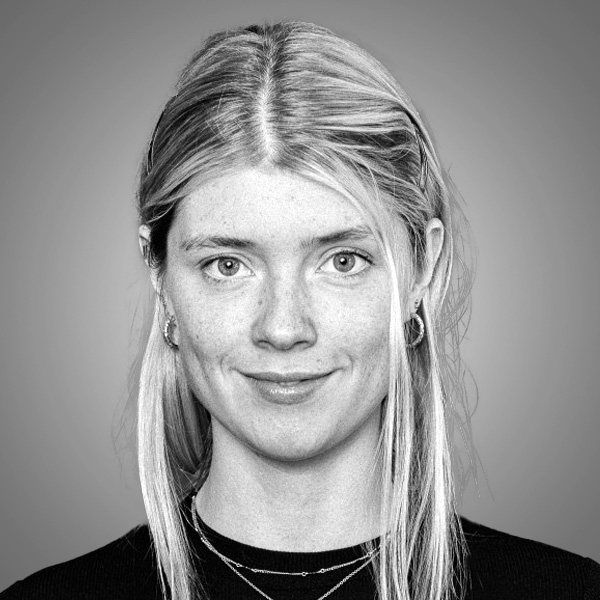
Jessica Burley
Investor, Planet A

Elena Stark
Impact Associate, AENU

Morgan Sheil
Head of Impact, World Fund

Moderator: Hampus Jakobsson,
Pale Blue Dot
DESCRIPTION
Everyone wants to know the likely climate impact for any given climate tech startup, and the answers vary hugely depending on the category (ag, transport, materials etc.) as well as the technology and, of course, eventual market adoption. How strict should we be when measure “impact?” How do we really think about attribution (ex: when Lufthansa shifts to electrical airplanes, should Lufthansa be climate zero, the airplane maker?) If we adopt a framework for measurement, does that limit us from investing in frontier topics, such as biodiversity or geo-engineering? Companies must scale to have any impact, and early on, there might be many pivots, shifts, and discoveries. Does that mean we should wait to measure until a later stage?
THURSDAY, APRIL 25, 10:00AM–11:00AM PT
Corporate venture capital is doubling down on climate. What are they looking for? How can they help?
Speakers

Brandon Middaugh
Senior Director, Climate Innovation Fund, Microsoft

Taehong Huh
Managing Partner, GS Futures

Adity Sharma
Principal, Honda Innovations

Moderator: Pae Wu
CTO, IndieBio; General Partner, SOSV
DESCRIPTION
The number of corporate VCs focusing on climate tech is surging, and their missions vary from shoring up the corporations value chain with new products and technologies to meeting public ESG goals. Microsoft for example has committed $1 billion to a fund that will help the tech giant be carbon negative by 2030. Firms in Asia, notably GS Futures (GS Group) and Honda Innovation are also active in the hunt for climate investments. What are CVCs looking for in the climate ecosystems, and what return do they expect?
FRIDAY, APRIL 26, 11:00AM–12:00PM PT
Nuclear SMR – Has the technology’s moment finally arrived?
Speakers
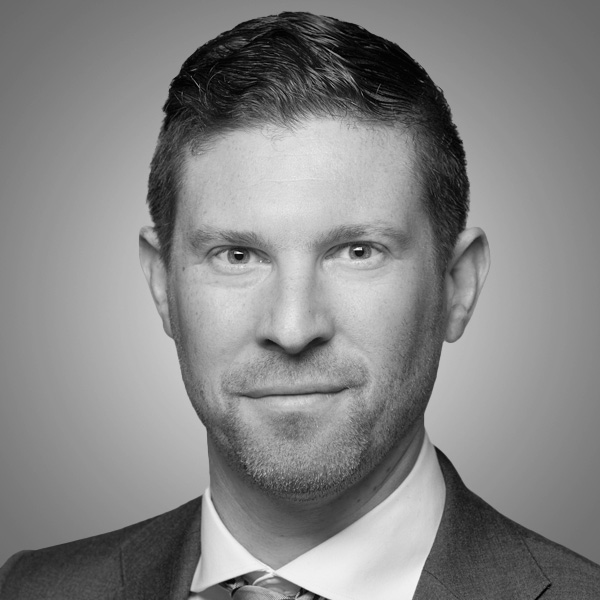
Bret Kugelmass
Chief Executive Officer, Last Energy
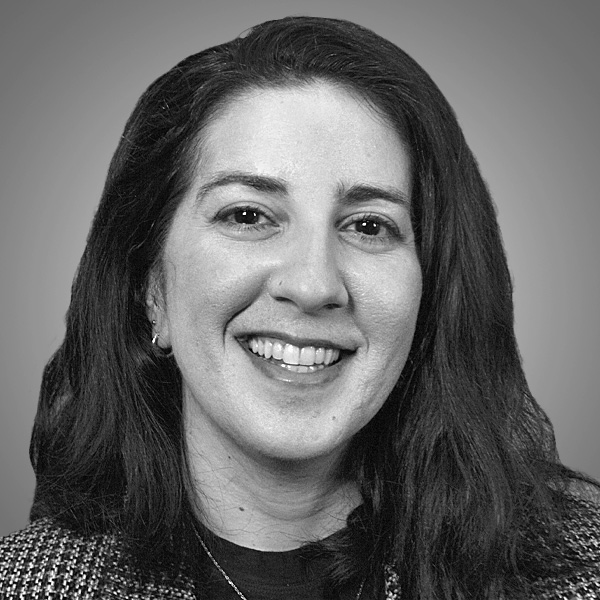
Moderator: Candice Ammori
Founder and CEO, Climate Vine
DESCRIPTION
Fission-based nuclear power, specifically small modular reactors (SMR), may be poised for a breakthrough amid growing global demand for baseload electricity, the intermittency challenge posed by renewable energy sources, and the accelerating need to close CO2 emitting power plants as soon as possible. To speed up the energy transition, officials in California and Michigan have taken steps to revive nuclear plants that were previously slated for closure, which may be the opening the nuclear industry has been waiting for. Small, modular reactors (SMR) are one path to move forward quickly. What does the future look like for SMR startups, which have raised more than $15 billion to date, and where should nuclear power fit into the world’s broader energy transition strategy?

